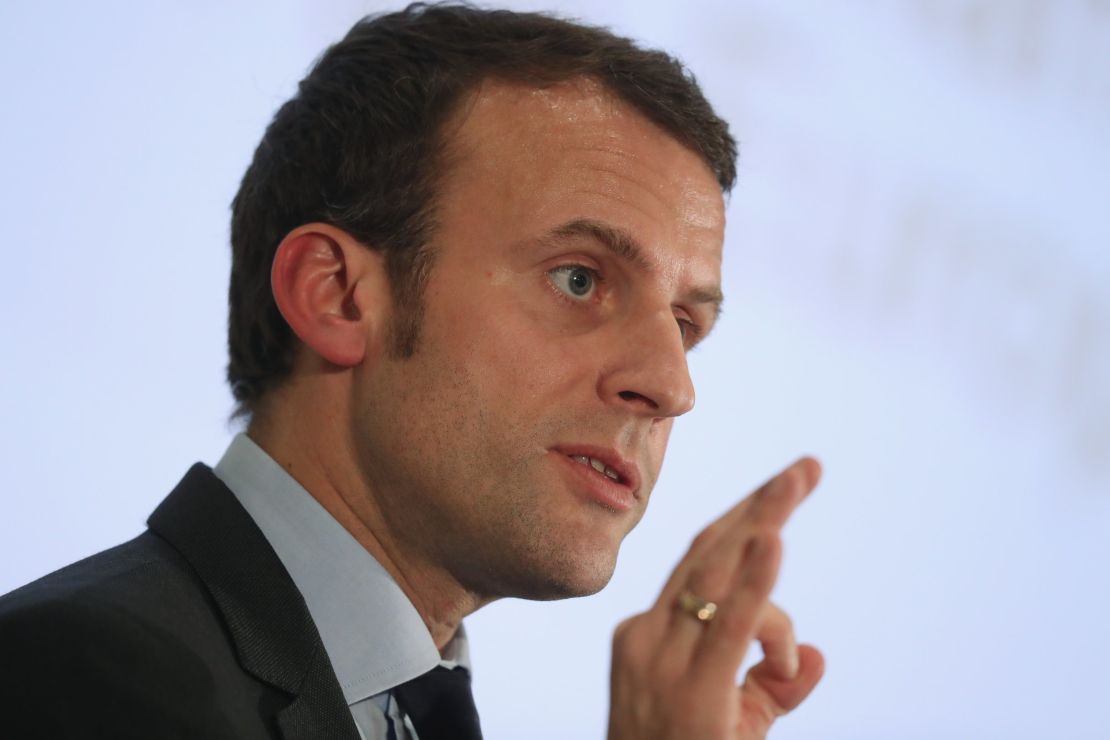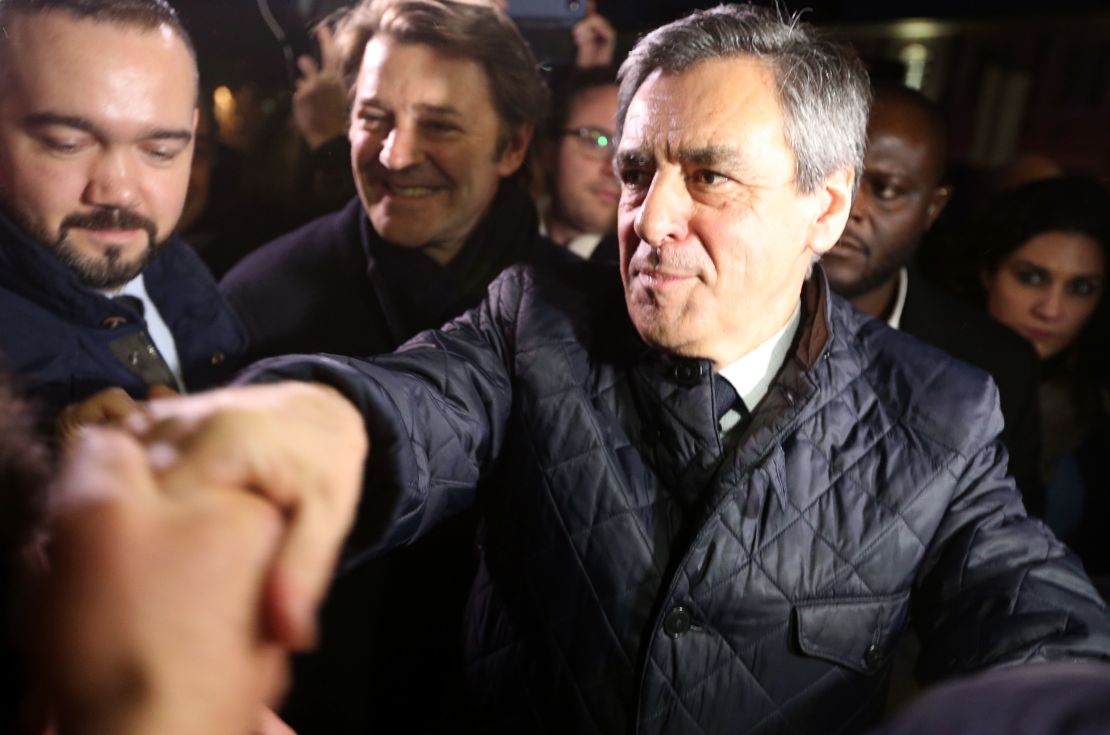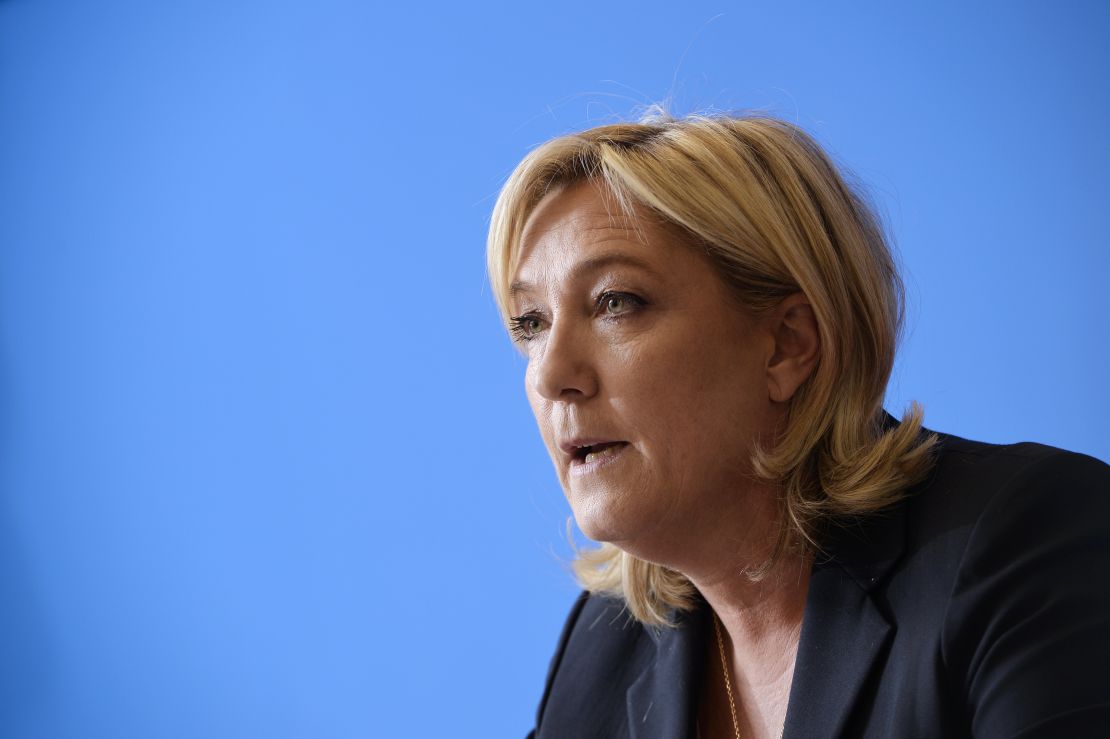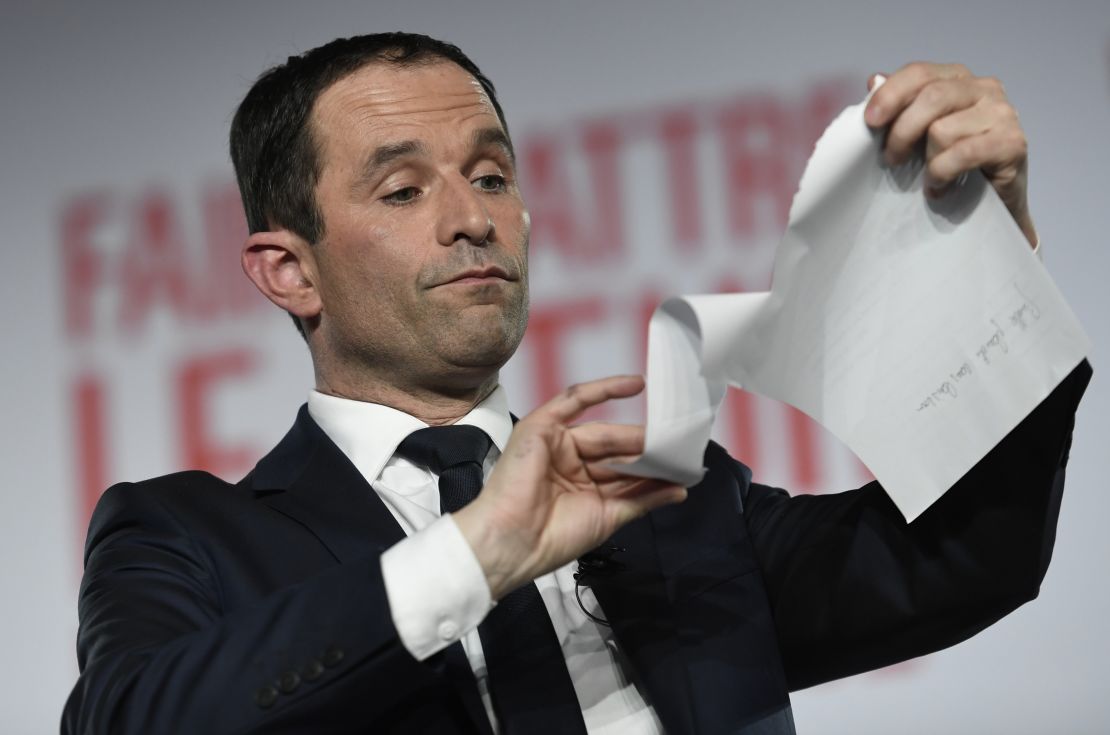After weeks of scandal, investigations and political infighting, the first live French election television debate will take place on Monday evening.
Five presidential hopefuls will go head-to-head in the first of three TV debates leading up to the first round of voting on April 23.
All eyes will be on far-right leader Marine Le Pen and independent centrist Emmanuel Macron, who are both widely expected to make it through to second round of voting on May 7.
Republican candidate François Fillon is hanging on by his fingertips after becoming embroiled in a parliamentary scandal, while Socialist Benoît Hamon and and far-left leader Jean-Luc Mélenchon are not expected to garner anywhere near enough votes to trouble the leading duo.
Here’s what you need to know ahead of the debate.
Who has the most to gain?

Mélenchon. He’s a far left candidate and excels in these types of events.
He’s a forceful debater and will gain popularity with every verbal punch he throws. In the past he’s done very well against Le Pen.
In fact, she’s refused to share a platform with him recently, until now.
Who has the most to lose?

Macron. His campaign has almost entirely shut down any communication with the press.
There’s a feeling that his team has decided this election is theirs to lose and that they need to ensure as little as possible is given away in the first round.
All eyes will be on Macron’s contest with Le Pen. His challenge is that in the rough and tumble of the debate, he may come off as an intellectual elite, which could make him appear out of touch.
Will Macron also have difficulties with his lack of a party? How will he govern? And who will serve in his cabinet?
The fewer questions, the better.
Will many watch it?

Record audiences are expected.
After the campaign being dominated by what the French call “les affaires,” there is a sense that Monday night will mark the start of the campaign proper, with many voters hoping for substance over scandal.
While the headlines have been taken up by Fillon being placed under formal investigation on multiple counts, including embezzlement of public funds, and Le Pen facing scrutiny after several members of her staff were accused by officials of being paid for non-existent jobs at the European Parliament, it’s now time for policy to take center stage.
Seeing the extent to which Hamon and Fillon – who represent the parties that have shared power since the start of the 5th Republic – come across will also be worth watching.
Who’s looking strongest?

Heading into it, Le Pen has a fierce reputation when it comes to debating her opponents.
She’s the only woman on that stage, she’s tough, and generally solid in these sorts of settings.
How’s it going to work?

The debate, being shown on TF1, will begin at 8pm local (3pm ET).
The first question the candidates will face is: “What kind of President will you be?” Each has 1 minute and 30 seconds to answer. Fillon will answer first, followed by Mélenchon, then Macron, then Le Pen, and finally, Hamon. The order was drawn by lots.
The debate – expected to last around two-and-a-half hours – will include topics such as education, security, immigration, terrorism, taxes and healthcare.
According to the rules, each candidate will get two minutes to answer a question, though they can can be interrupted in the final 30 seconds of their answers by their rivals.
What do the polls say?
It’s tight at the top with Macron and Le Pen fighting it out for the lead.
Two polls have the pair level while a third shows Le Pen slightly ahead of the independent candidate. Fillon stands third, ahead of Hamon and Mélenchon.
If no candidate gets an absolute majority in the first round in April, the top two finishers will then face each other in a run-off on May 7.
CNN’s James Masters, Maud Le Rest and Margaux Deygas contributed to this report.















